Program Details
The Master of Science in Management Information Systems (MS-MIS) 4+1 program is a rigorous, accelerated pathway to earning an MS-MIS degree that is available to students earning undergraduate degrees at Texas A&M University. Our students leave our program with a solid technical information systems foundation and appropriate business skills. Graduates can immediately contribute to solving business problems, which makes them highly valued and respected in the workforce and sought after by top companies.
Students may also pursue one or more graduate certificates. The Department of Information and Operations Management offers two certificates. Business Intelligence & Analytics Certificate and Cybersecurity Management Certificate are two options to advance your technical skillset to gain a competitive advantage in your industry.


Prerequisites
Students who have already completed or are in the process of completing a bachelor’s degree may apply for the master’s program in Management Information Systems (MS-MIS). Applications for the MS-MIS program are accepted for fall admission only.
The MS-MIS program has four program prerequisites:
- A course in programming (Java, C#, VB, etc. such as ISTM 250 or ISTM 601)
- A database management course (such as ISTM 315 or ISTM 615)
- A course in systems analysis and design (such as ISTM 320 or ISTM 620)
- A course in business data communications (such as ISTM 310 or ISTM 610)
We do not accept work experience, corporate training programs/classes, or courses taken through open online course providers as prerequisite credit. Only courses from accredited colleges/universities will be accepted. A grade of C or better must be earned in each course in order for it to fulfill one of the prerequisite requirements.
Curriculum For MIS Undergraduates
The list below provides an example of the course load for an undergraduate MIS major pursuing the 4+1 MS-MIS pathway.
During UG Program – Spring (6 hours)
- ISTM 635 Business Information Security (offered in spring only)
- ISTM 643 Corporate Information Planning
Summer Before First Semester of MS-MIS Program (3 hours)
- ISTM 684 Professional Internship (as Directed Elective)
First Semester – Fall (15 hours)
- ISTM 622 Advanced Database Management
- ISTM 624 Advanced Systems Analysis & Design
- ISTM 630 MIS Project Management & Implementation
- Directed Elective
- Directed Elective
Second Semester – Spring (12 hours)
- Directed Elective
- Directed Elective
- Directed Elective
- Directed Elective

Curriculum For Non-MIS Undergraduates

The list below provides an example of the course load for Non-MIS undergraduate students pursuing the 4+1 MS-MIS pathway.
During Undergraduate Program
Prerequisites:
- ISTM 250 Business Programming Logic & Design
- ISTM 315 Database Programming
- ISTM 320 Business Systems Analysis & Design
Hold for Graduate Credit (taken during final undergraduate spring semester):
- ISTM 643 Corporate Information Planning
- Directed Elective
Summer Before First Semester of MS-MIS Program (3 hours)
- ISTM 684 Professional Internship (as Directed Elective)
First Semester – Fall (15 hours)
- ISTM 610 Business Data Communications (last prerequisite)
- ISTM 622 Advanced Data Management
- ISTM 624 Advanced Systems Analysis & Design
- ISTM 630 MIS Project Management & Implementation
- Directed Elective
Second Semester – Spring (15 hours)
- ISTM 635 Business Information Security
- Directed Elective
- Directed Elective
- Directed Elective
- Directed Elective
Elective Course Options
Students wishing to enroll in an ISTM or SCMT course that is full may access the Department of Information and Operations Management’s wait list system to request enrollment in the course.
Elective Courses (Select seven courses – 21 credits)
- ISTM 631 Information Systems Design and Development Project
- ISTM 637 Data Warehousing
- ISTM 645 IT Security Controls
- ISTM 650 Business Data Mining
- ISTM 652 Customer Relationship Management and Technologies
- ISTM 655 Security Management & Compliance
- ISTM 660 Applied Predictive Analytics for Business
- ISTM 680 Human-Computer Interaction in MIS
- ISTM 681 Ethics of Information Systems
- ISTM 684 Professional Internship
- ISTM 689 Special Topics in…
- ACCT 647*/FINC 647* Financial Statement Analysis
- CSCE 606* Software Engineering
- CSCE 625* Artificial Intelligence
- CSCE 629* Analysis of Algorithms
- CSCE 633* Machine Learning
- CSCE 636* Deep Learning
- CSCE 638* Natural Language Processing: Foundations & Techniques
- CSCE 652* Software Reverse Engineering
- CSCE 655* Human-Centered Computing
- CSCE 656* Computers and New Media
- CSCE 662* Distributed Processing System
- CSCE 664* Wireless & Mobile Systems
- CSCE 665* Advanced Networking & Security
- CSCE 676* / ECEN 758* / STAT 639* Data Mining & Analysis
- CSCE 678* / ECEN 757* Distributed Systems & Cloud Computing
- CSCE 679* / VIZA 676* – Data Visualization
- CSCE 701/CYBR 601* Foundations of Cybersecurity
- CSCE 702* / CYBR 602* Law & Policy in Cybersecurity
- CSCE 703* Cybersecurity Risk
- CSCE 704* / CYBR 604* Data Analytics for Cybersecurity
- CSCE 711* / CYBR 711* Foundation of Modern Cryptography
- CSCE 713* Software Security
- CSCE 765* Network Security
- ECEN 649* Pattern Recognition
- ECEN 740* Machine Learning Engineering
- ECEN 759* / CYBR 630* Hardware Security
- ECMT 673* Economic Analytics
- ECMT 674* Economic Forecasting
- FINC 629* Financial Management I
- FINC 630* Financial Management II
- FINC 646* Technical Analysis of Financial Markets
- GEOG 660* Applications in GIS
- ISEN 608* Industrial Case Analysis
- ISEN 613* Engineering Data Analysis
- ISEN 635* Human Information Processing
- ITDE 689* Advanced Entrepreneurship in Energy and Climate
- MATH 673* Information, Secrecy, & Authentication I
- MGMT 632* Technology Commercialization
- MGMT 633* Organizational Change and Development
- MGMT 637* Foundations of Entrepreneurship
- MGMT 639* Negotiations in Competitive Environments
- MGMT 640* Managing for Creativity & Innovation
- MGMT 675* Leadership in Organizations
- MGMT 679* International Business Policy
- MKTG 671* Product Innovation
- MKTG 677* Multinational Marketing Management
- MTDE 611* – Enterprise Basics for Technical Entrepreneurs
- MTDE 613* – Engineer to Chief Executive Officer
- MTDE 614* – Skills for Technology Leadership
- MTDE 615* – Startup Fundamentals – Launching, Growing, and Exiting a Startup Company
- MTDE 651* – Product Lean Launch for Engineers
- PETE 686* Petroleum Data Analytics and Machine Learning
- PHPM 606* Health Systems Management
- PSAA 608* / CYBR 661* Cybersecurity Policy, Issues, & Operations – A Manager’s Guide
- SCMT 611 Statistical Foundation of Data Analytics
- SCMT 637 Modeling & Optimization
- SCMT 638 Information Technology in Supply Chain Management
- SCMT 645 Business Process Design
- SCMT 667 Logistics & Distribution Management
- STAT 604* Topics in Statistical Computation
- STAT 608* Regression Analysis
- STAT 616* Statistical Aspects of Machine Learning I: Classical Multivariate Methods
- STAT 624* Database & Computational Tools Used in Big Data
- STAT 626* Methods in Time Series Analysis
- STAT 630* Overview of Mathematical Statistics
- STAT 631* Statistical Methods in Finance
- STAT 636* Applied Multivariate Analysis & Statistical Learning
- STAT 647* Spatial Statistics
- STAT 648* Applied Statistics & Data Analysis
- STAT 650* Statistical Foundation for Data Science
- STAT 651* Statistics in Research I
- STAT 652* Statistics in Research II
- STAT 654* Statistical Computing with R and Python
- STAT 656* Applied Analytics
*These courses have been approved as MS-MIS electives; however, students may need to receive permission from the department offering the courses in order to enroll. See individual course restrictions in Howdy to determine eligibility.

Fund Your Education



